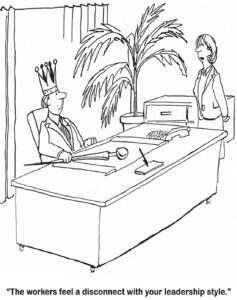By Sherif Attar
In a world of ever-changing ambiguity and uncertainty, executives have to face two challenges: excellent performance and people development. Where many managers think those endeavours are “competing”, this author believes they are “completing”. GET DOWN TO BUSINESS argues.
“Professionalism is not the job you do, it’s how you do the job.”
I’m often faced with the question of “professionalism” in my seminars, and I came to realise that people have different ways of reading that word. Recently, I came across an article that may shed some light over the term.
Professionalism involves consistently achieving high standards, both visibly and “behind the scenes”. Some workplaces have particular “rules” of professionalism. These may be explicit, such as an agreed dress code, or a policy for using social media. Other rules may not be written down, but they can be just as important – such as what is regarded as professional behavior at meetings, or even how people personalise their desks.
“Fitting in” is a big part of professionalism, as it’s a way to show respect and commitment to practices and values. However, “being true to yourself” is just as important. True professionals don’t follow rules mindlessly, and they know how to challenge norms. They’re also flexible, and they find their own ways to do things – while maintaining high standards.

Characteristics of professionalism
- Competence
Your abilities should match the requirements of your role, and you often produce results that exceed expectations.
- Knowledge
Professionalism involves developing detailed, up-to-date knowledge. Being professional means feeling confident to show what you know to help yourself and others to succeed.
- Conscientiousness
Professionalism involves being reliable, setting own high standards, and showing that you care about every aspect of your job. It’s about being industrious and organised, and holding yourself accountable for your actions.
- Integrity is what keeps professional people true to their word. It also stops them compromising their values, even if that means taking a harder road.
- Respect
Professionalism means being a role model for good manners to everyone. What’s more, you show that you truly respect other people by taking their needs into account.
- Emotional Intelligence
You need to stay professional even under pressure. This takes strategies for managing your emotions, plus a clear awareness of other people’s feelings. Sometimes, professionalism means keeping your emotions in check. But at other times it’s important to express your feelings, in order to have meaningful conversations or to stand up for what you believe in.
- Appropriateness
A big part of being professional is knowing what’s appropriate in different situations. It avoids awkwardness or upset, boosts your credibility, and helps you to feel secure in your role. Appropriateness relates to appearances, such as dress, grooming and body language, the way you speak and write, the topics you choose to discuss, and how you behave with others.
- Confidence
Well-founded confidence reassures and motivates other people, boosting your ability to influence and lead. It also pushes you to take on new challenges, because you don’t fear damaging your professional reputation if things go wrong. Professionalism makes you confident about what you’re doing now, but always eager to do it better and achieve more.
For questions or suggestions, please send your comments.
Sherif Attar, an independent management consultant/trainer and organisation development authority, delivers seminars in the US, Europe, Middle East and the Far East.






Discussion about this post